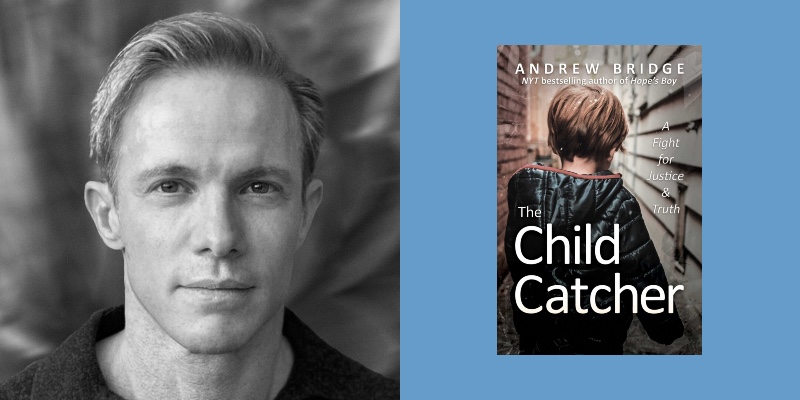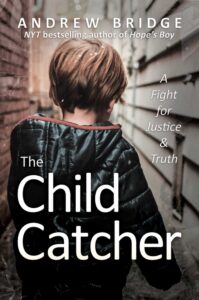I wrote Hope’s Boy sixteen years ago. In that memoir, I shared my life with my mom, Hope. I wrote about our lives together while she developed paranoid schizophrenia and apart while I grew up in foster care. I was six when Los Angeles County took me from her and decided to place me in MacLaren Hall. Located on the county’s arid outskirts, MacLaren had been an abandoned polio hospital before it was turned into a holding facility for foster children. The facility’s maze of wards, corridors, and basements could house more than three hundred children, from day-old infants to eighteen-year-olds. The population quickly swelled into a confused mix of foster children and older adolescents transferred from packed juvenile detention halls and camps. The result was a chaotic and violent compound. Despite repeated calls from grand juries, investigative reporting, and the public to shut the facility down—even outright demolish it—Los Angeles County defended MacLaren and kept it running. I was there for one year, and what happened has never left me.
After graduating from Harvard Law School, my career advocating for children’s rights began at another state facility, one that was part of the sweeping, decades-long civil rights lawsuit Wyatt v. Stickney. The federal class action covered the thousands of individuals who had been sent to Alabama’s psychiatric institutions, regardless of age, gender, mental illness, or even the lack of one. At the time, I was new to practicing law—the most time I had spent in a courtroom was as a boy growing up in foster care. My role was to represent the children at Alabama’s largest facility for children, located in the rural southeast corner of the state.
The Eufaula Adolescent Center held 120 children, and Alabama began operating it around the same time I was leaving MacLaren Hall. Many children there were in foster care or about to enter it, and nearly all came from homes with hardened backgrounds like mine. Eufaula had a long and well-known history of violence, including abuse by staff and other children. It also had a history of covering up that violence. Like MacLaren, Eufaula was the place Alabama refused to surrender. What became a lifetime of defending children’s rights began by returning to what I remembered from my first day without my mom—my first year in the system spent at MacLaren.
Facilities like MacLaren and Eufaula continue to operate across the country. Many are owned by for-profit corporations that advertise themselves as private residential treatment programs for “troubled teens” but remain largely exempt from regulation and oversight. State and local authorities run others for children in foster care, juvenile justice, and mental health systems. Certainly not all of them, but too many remain the subjects of investigations based on reports of harm done to children. I have sat with children confined to them and listened to their stories. They tell me about their parents and friends, neighborhoods and schools—about a time when their lives were different. They talk about finding their way back to the things they remember. Their forgiveness is extraordinary. They are the bravest children I have ever known.
I have written this book for the thousands of children in those places. This is the story of what brought me to an isolated institution in rural Alabama and my fight for the children of Eufaula. Before I went to Eufaula, I did everything I could to forget being a boy who had been put in another institution. I pushed and pulled until I had the education and honors that I needed. I did what I could to erase my past and replace it with an ordinary life. Part of me never wanted to go to Eufaula, but I went anyway.
Chapter One
One night in early March 1992, the older boys were crowded in the TV room when a shoving match erupted in the ward. Nothing that couldn’t be handled right there, except for David. He was already in the seclusion room when the charge nurse called for more than the usual two men. It was shortly after nine o’clock, and Eufaula’s grounds were as dark and quiet as the thickets of piney woods outside its barbed-wire fences. The institution’s central administrative building had been closed for hours. The senior employees who wore suits and crisp dresses had left for the evening. Yet within minutes of the nurse’s call, the darkened lawns were covered with a knot of orderlies, security guards, and groundskeepers.
A wiry fifteen-year-old with the body of a child, David was considered a “problem” from the get-go. A lonely boy, now with flashes of a temper, he ached for fishing trips and his father’s pickup, his mother’s complaints that he slept in too late on Saturdays, the walk he took alone to school. He missed the things that hadn’t mattered before.
Jeff McCowell told the assembled group of men where they were headed. The facility’s night director, McCowell didn’t have to say much. Everyone there had done it before. A few of the men bickered, complaining it was close to the end of their shift or the start of a break, but work at the children’s mental institution was good, the wage enough to support a family in one of Alabama’s poorest counties. Those jobs weren’t easy to get, and when a man found one, he kept it. That’s why McCowell didn’t need to press. He waited for the men to finish their grousing, then led them down the slick, glassy lawns.
Pacing ahead through the dark, McCowell tugged open the rusted metal door to the boys’ ward and headed up to the third floor. Teenagers gawked from their bedroom doors, stripped to their T-shirts and underwear for bed. McCowell cut to the front and peered through the observation slat of the seclusion room. Drunk with a fresh shot of Thorazine, David lay against the cinder-block wall. His bare flat chest slumped to his belly. His socked feet spread from the new pair of jeans his mother had packed the night he left. The charge nurse inched away when McCowell stepped to her station and held out his palm for the key. Returning to the strip of scratched glass, he stabbed the key into the lock and shouldered open the seclusion door.
David did nothing.
McCowell stepped closer and bent to the boy’s face.
Still nothing.
In the cold hum of the air-conditioning, three orderlies entered. They stared at the boy breathing slowly at their feet.
Perhaps it was the warm air rushing in from the open door, the scent of men cutting through the room’s cleaning fluid, or a whisper that warned David something was happening. He raised his head, sharpened his gaze into the vacant haze, and in a moment of clarity, shoved his palms against the floor and pushed against the wall in an attempt to stand, to gain a footing.
He only slid lower.
The orderlies stepped closer.
“Get a move on,” a security guard snapped from the door.
With a yank, David’s head cracked against the floor. The attendants in their white uniforms propped him upright. Half standing like a teenager after his first long night in a bar, David fell into the sober ones, who pushed him the few feet toward the door.
Laughter roared down the hall. Rows of adolescents hollered at the boy they’d known for only a few weeks.
“Come on, David, throw a punch! Kick the fat ass!” an older voice screamed.
A smaller boy shouted, “Bite ’em in the arm!”
Another boy stripped to his underwear danced into the path, mimicking David’s neck lopping from side to side. “I spit at that one, there, in his fuckin’ face!” he gloated.
The clearing narrowed. Stumbling in the hallway, the orderlies and a security guard yanked the limp body upward. The shouts grew. McCowell slammed the bar on the stairwell’s door. The exit drifted shut behind them and the uproar quieted. David was alone with the staff.
The wrap of men navigated the narrow stairs and lowered the teenager cautiously, aware that a tumble would bring them all down. At the last of the three flights, the rush down the steps must have been tempting, an end to the claustrophobia and to the freedom of the open night. The tangle loosened around the boy. Guards peeled away, hunched and sweating, grateful for the evening cool and the stars that burned the black heaven above.
On the concrete landing, David stood separate from all he knew, all he trusted. A mere month had taught him that no one was there to help. He could take the chance to bolt. He’d run for the fences and hide in the woods. He’d think which way to his parents’ house, 225 miles southwest in Foley. But by the time David took his best guess, the dogs from the Ventress men’s prison in Clayton would’ve been set loose. Bred to chase and snare, the pack would circle, leap, then snap at his neck until it tore him to the ground. A trooper or guard would drag him by the head and shove him into an Alabama state car. Running would only give him a few hours. He’d be back.
McCowell nodded to the others. The men recircled, dragging David across the gravel road that divided the institution until they reached a warehouse against the barbed-wire perimeter fencing. McCowell broke off, jerked open a door that read Vocational Rehabilitation. Under the glare of industrial lights, worktables and stools were scattered where children at the facility ripped apart strings of rubber fishing lures, stuffing them in plastic baggies for the tourists and tackle shops in town. Past the workspace was an office door that was always shut. McCowell pulled a key from his belt. At the sight of the darkened, unfamiliar room, David flailed against the men around him. The Thorazine was clearing his system. “Mom? Dad? Where are you?” he howled at the corrugated roof.
The men were football player big, and there were a lot of them. This worked against them as they crushed against each other in the shadows. A slick arm elbowed a gut. A foot scraped a shin. Scrambling to hold the boy in their core, the man closest yelled at McCowell, “The fucking door! Get the fuckin’ thing open!”
McCowell moved to the nearest of three black metal doors. Fumbling to free the wooden crossbar from its brackets, he threw it to the ground and glanced over his shoulder in the dim light. A trail of abandoned Christmas lights spidered out of a box. Why can’t that goddamned kid shut up? With everything he had, McCowell pressed the pit of his palm against the latch pin until the metal door gave way. Inside, the cell was smeared with red mud as high as a child could reach. A mesh of steel was bolted overhead. Over that, a single bulb burned. The stench of urine and feces wafted from the corners.
A guard lifted David from the muddy floor, while others pushed from behind. The boy hit the ground in a lurching heave as the men rushed for the exit. They knew he’d throw himself at the door with all he had, and they couldn’t let him escape. McCowell snapped the lock shut, slid the latch pin back, and wedged the crossbar into place. No one acknowledged the screams.
___________________________________


















